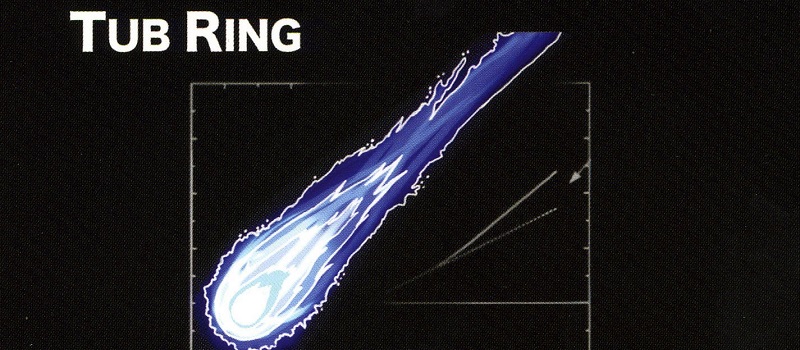In the liner notes to their fifth full-length offering, the members of Chicago’s Tub Ring scrawl a few words about how, several thousand years ago, our ancestors from outer space “seeded” Earth with life. The sentiment is arguably a direct descendant of William S. Burroughs, the great American writer who was never at a loss for compelling and occasionally surreal narratives about the origins of culture and Western language systems.
In Tub Ring’s hands, the theme — visited from time to time throughout the aptly titled Zoo Hypothesis — gets a slightly different treatment, instead reflecting colors of isolation, abandonment, and rage at authoritarian structures. You might not be able to ask for a more punk-rock reading of such a decidedly sci-fi germ of an idea. But while Tub Ring may thrash about with all the unhinged fury and pent-up aggression of a punk-rock band, these musicians distance themselves significantly from the trappings of the genre by avoiding three-chords-and-a-cloud-of-dust clichés and instead displaying a proficiency for dense, shape-shifting passages and genre-twisting sonic collage.
Zoo Hypothesis is, in short, the record Mike Patton probably should have made between Faith No More’s Angel Dust and Mr. Bungle’s Disco Volante. Tub Ring is clearly more entrenched in the hardcore and punk traditions than those bands ever were, but vocalist Kevin Gibson seems to make no bones about modeling his delivery after their theatrical and able-throated frontman. On a good handful of the record’s 16 tracks, it can be downright scary to hear the similarities, from the way Gibson slips that operatic tremolo into his vocal scales to how he adopts Patton’s wild-eyed carnival barker roar and lays them right over Tub Ring’s angular verses and refrains. It doesn’t feel like it’s an homage, really, as much as it’s a form of impersonation and mimicry (conscious or unconscious is left for you to decide), but it seems to work.
The remaining four-fifths of the quintet, however, are far from just a backing band for Gibson’s clearly practiced delivery. Collectively, they serve up a feast of genres and colorful passages, often jumping from one to the next several times over the course of fairly short songs. So, the listener gets the Skeleton Key/Danny Elfman introductions of “Tiny, Little,” the choppy metal guitars and funky bass of “Death of a Robot,” the synth flourishes that inaugurate “The Promise Keeper,” and the mosh-pit-initiating punk of “Sharpening the Sticks.”
And they get them all, in rapid and interwoven fixes, over the span of less than 10 minutes. There are moments when the quirky diversity feels more plotted than intuitive — the cheesy harem sway that sets the pace for “I Could Never Fall in Love with You,” the “California Girls” sunshine-optimism of “Raindrops” — but it doesn’t flat so much as it just slows the record’s impressively aggressive pace.
One clever technique that makes up for that and keeps the record moving, though, is the placement of tight (and sometimes nonexistent) slivers of dead space between songs. More times than not, Tub Ring thrashes from one track right into the next, leaving the listener to wonder where one narrative cools down and the next gets its blood boiling. The conceit works, forcing you to take in all the passages as one massive flurry of sound. It’s particularly effective between the record’s most aggressive and pounding fare. Case in point: the way the hardcore roar of “Dog Doesn’t Bite” bleeds right into the punk march of “Alexander in Charge.” One second, we’re listening to Gibson repeatedly bark the title of “Dog Doesn�t Bite” over quick, successive hits of guitar, bass, and drums, and the next, we’re thrown into an entirely different barn burner.
A similar trick bridges the acidic, full-throat screams of “The Viking Song” with the Ramones blitzkrieg-bop bridges of “We are the Righteous.” (Though the latter includes an absolutely furious chorus, what I keep returning to is a sinister buried keyboard line that feels like it was pulled right out of the B-52’s “Rock Lobster.”)
There are moments on Zoo Hypothesis that could grab the ear of someone not hungry for inventive or bombastic punk (the bizarre carnival collage “The Night Watch,” the somehow deceptively soothing “Vehicle”), but Tub Ring works best here when the amps and the mixing board are cranked up to meltdown levels. It’s here where, conceits and collages and concepts aside, you figure the band has got to be loud and angry enough to be heard on whatever planet to which those alien ancestors were in such a rush to return. – Delusions of Adequacy, Sept. 28, 2004
-30-




